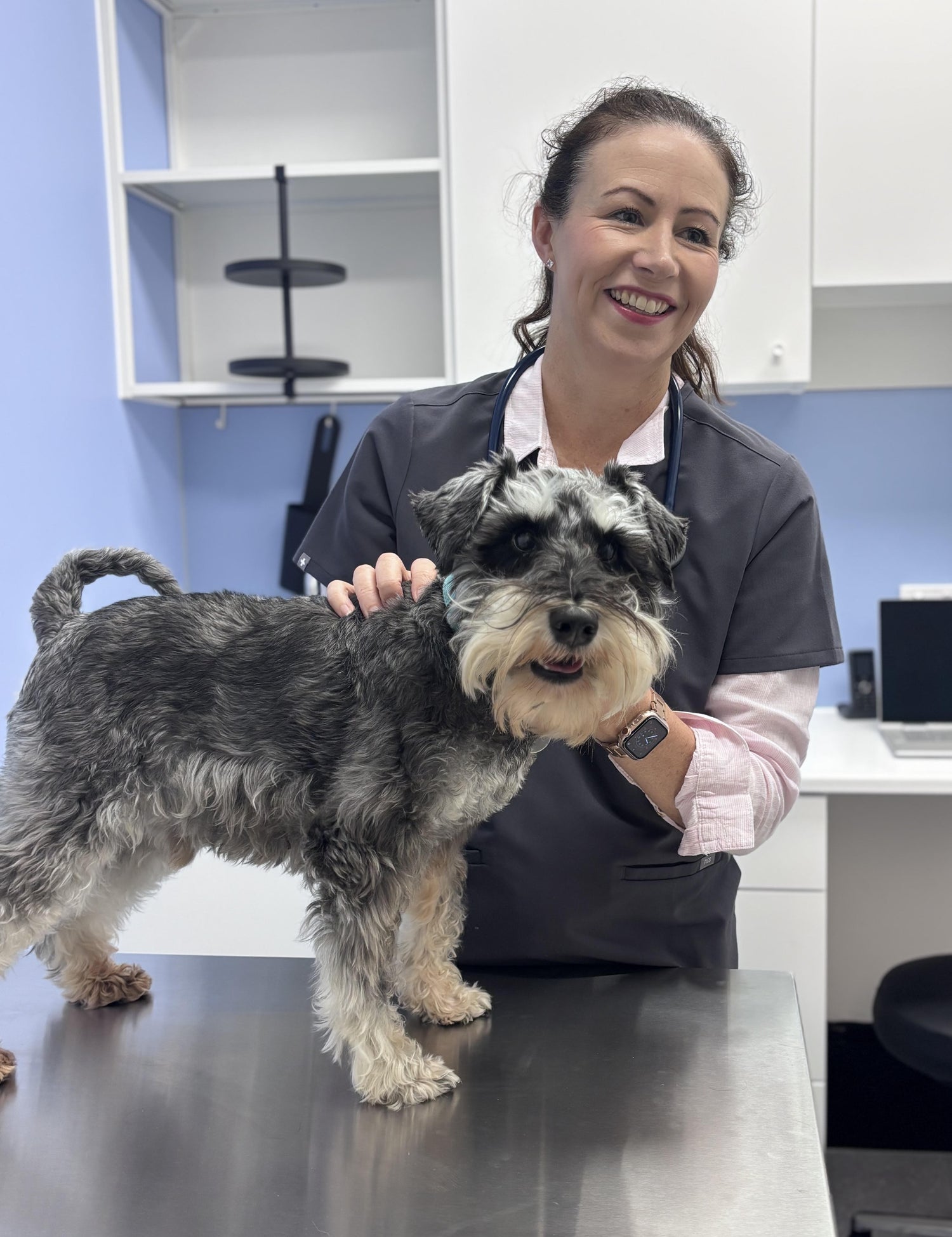Dentistry

Dentistry is a very important aspect of your pet’s health. More and more we are understanding the significant effect that dental disease can have on the overall health and well-being of the animals we treat.
Just like humans, pets’ teeth need looking after! The health of your pet’s teeth and gums has a significant impact on their overall quality of life. Imagine how your mouth would feel, and smell, if you never brushed your teeth! Imagine having a severe toothache and not being able to tell anyone about it!
Dental disease typically begins with a build-up of plaque, which consists of bacteria, food particles and saliva components, on the teeth. Plaque sticks to the tooth surface above and below the gum line and if not removed will calcify into tartar (also known as calculus). This appears as a yellow-brown material on the teeth. Over time the plaque and tartar can result in periodontal disease, which can result in irreversible changes to the teeth and their surrounding supportive structures.
Periodontal disease can result in local problems, such as red and inflamed gums, bad breath or halitosis, and ultimately the loss of teeth. There is also evidence that periodontal disease can be associated with disease in other organs, including the heart, liver, kidneys and brain. Ultimately, dental disease is more than just a cosmetic issue – it can be a cause of significant illness and pain in dogs and cats.
Some common signs of dental disease include:
- Yellow-brown tartar on the teeth and around the gum line
- Inflamed, red, sometimes painful gums or gingivitis
- Bad breath or halitosis
- Changes in eating or chewing habits (especially in cats)
- Pawing at the face or mouth
- Excessive drooling
- Pain or bleeding when the gums or mouth are touched.
If your pet is showing any of these signs of dental disease, please book an appointment to see one of our veterinarians. Early assessment and action can save your pet’s teeth!
It is very important to note that some animals with dental disease may show no obvious signs particularly in the early stages. It is also important to remember that just because your pet is eating, it doesn’t mean they do not have dental pain.
How can I prevent dental disease?
Long-term control and prevention of dental disease requires regular home care. The best way to begin this is to desensitise your pet to teeth brushing from a young age. Dental home care may include:
Collapsible content
Daily Teeth Brushing
Just like us! This is the best form of dental hygiene and dental disease prevention. Pet toothbrushes or finger brushes and toothpaste are now available. Please do not use human toothpaste formulas as they are not designed to be swallowed and may be toxic to your pet.
Teeth Friendly Chews and Toys
Use dental toys, enzymatic chews, or teeth cleaning biscuits, all of which may help keep the teeth clean. Chews such as Greenies, Veggiedent or Oravet Chews can aid in maintaining good dental health.
Special Dental Diets
Feeding pets special dental diets such as Hills T/D and Royal Canin Dental diet can help reduce the accumulation of tartar.
As with most things, when it comes to dental disease, prevention is definitely better than cure. Regular and frequent attention to your pet's teeth may avoid the need for a professional dental clean under anaesthetic and will also improve your pet's overall health.
What does a professional dental clean involve?
It is similar to a scale and polish done by a dentist for us, however, unlike us, our pets won’t sit still or open their mouth to allow a comprehensive examination or cleaning of their teeth. Your pet may also require extractions if any teeth are damaged or diseased and this will reduce or prevent pain and potential infections or abscesses from developing.
After your pet is anaesthetised, we perform a thorough assessment of their teeth which involves a thorough scale and polish, probing, and dental xrays.
Dental xrays are a very important aspect of this treatment as it will enable us to get a full picture of your pet’s teeth and mouth, including any pathology under the gum-line that may not be visible externally and that therefore may otherwise be missed. For this reason, our pets need to have a general anaesthetic for a professional dental assessment and clean.
Your pet will need to be assessed by one of our veterinarians prior to the procedure. The degree of dental disease will be assessed to determine what type of treatment is required. If your pet has particularly severe dental disease and requires a large number of extractions, we may need to perform the procedure in two separate stages as this is safer for you pet.
The assessment will also include a physical exam, and possibly blood tests to ensure they are healthy prior to having an anaesthetic. Once anaesthetised, we can give the teeth a thorough cleaning using our specialised dental equipment. When your pet goes home, we will also discuss methods of reducing dental disease in the future.
If you have any questions about dental care or professional dental procedures please do not hesitate to contact us on 8542 6185.
